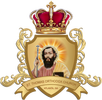The Malankara Orthodox Syrian Church was founded by St. Thomas, one of the twelve apostles of Jesus Christ, who came to India in A.D. 52. At least from the fourth century, the Indian Church entered into a close relationship with the Persian or East Syrian Church. From the Persians, the Indians inherited The East Syrian language and liturgies, and gradually came to be known as Syrian Christians. In the sixteenth century Roman Catholic missionaries came to Kerala. They tried to unite the Syrian Christians to the Roman Catholic Church and this led to a split in the community. Those who accepted Roman Catholicism are the present Syro-Malabar Catholics. Later, Western Protestant missionaries came to Kerala and worked among The Syrian Christians. This also created certain divisions in the community. In the seventeenth century, the Church came in to relationship with the Antiochene Church, which again caused splits. As a result of this relationship, the Church received West Syrian liturgies and practices. The Church entered into a new phase of its history by the establishment of the Catholicate in 1912.
At present, the Church is using the West Syrian liturgy. The faith of the Church is that which was established by the three Ecumenical Councils of Nicea (A.D. 325), Constantinople (A.D. 381) and Ephesus (A.D. 431).
The Church is in communion with the other Oriental Orthodox Churches namely, Syriac, Alexandrian, Armenian, Eritrean and Ethiopian Orthodox Churches. The Church is in good ecumenical relationship with the Eastern Orthodox, Roman Catholic and Protestant Churches.
This Church now consists of about 2.5 million members, who are spread all over the world, though the majority reside in The state of Kerala in South West India. The Supreme Head of the Church and the present Catholicos is H.H. Baselios Marthoma Mathews III. H H’s residence and the Head-quarters of the Church is in Kottayam in the Kerala State of the South-West India. The Church as a whole is divided into 30 ecclesial units called dioceses and each diocese is served by a bishop, administratively and spiritually.
